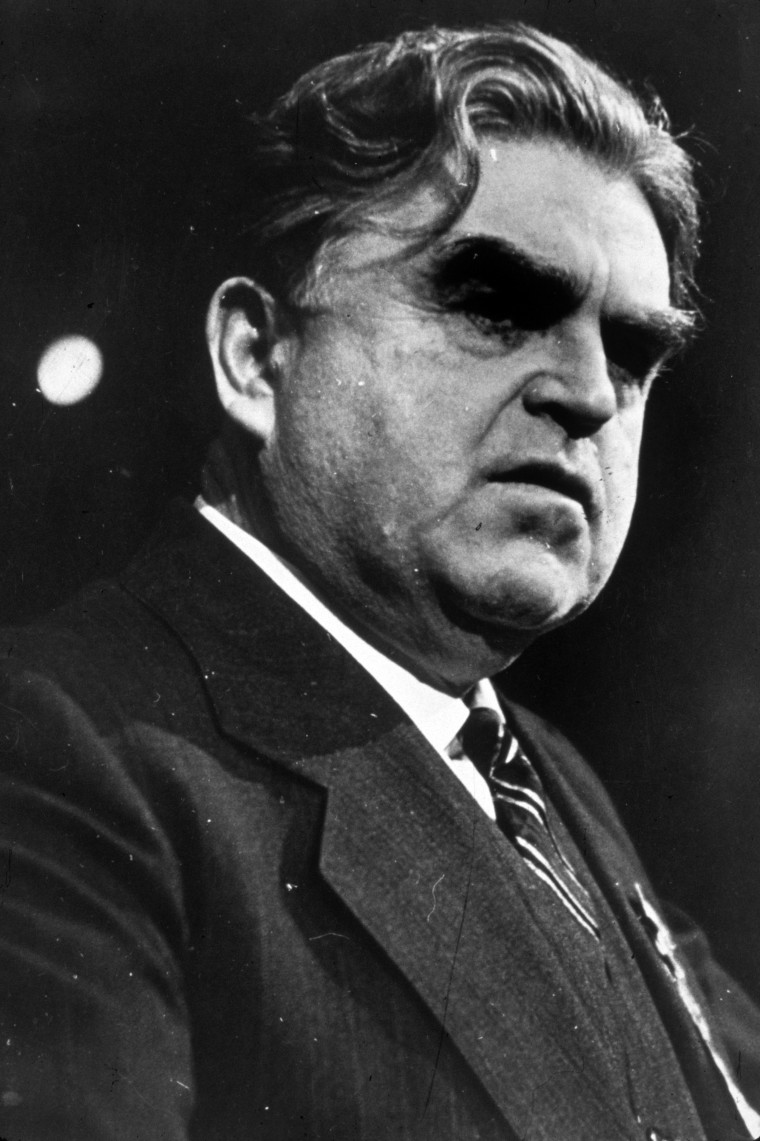I never knew my paternal grandfather. He died, deep under the earth, in 1898, in a coal mine. He was 41.I never knew my Uncle James, my father’s eldest brother, either. He died in the mines in 1912, at age 26.My father, who started working for the mining company when he was 14, was luckier: Though he went down into the mines as soon as he was old enough, he always came back up again, and lived to a ripe age. But like his father and brother, many other miners in my little Pennsylvania town did not.‘Eight hours labor, eight hours rest’For many Americans, Labor Day means a rest from labor, a bittersweet holiday marking the end of summer. But for me it also evokes sounds from my childhood: the toll of church bells whenever there was a cave-in, summoning us to the mines to pray as we waited to find out who had perished and who would come out. And afterward, the chants of workers demanding improvements in safety and working conditions. I learned to read the Mine Workers Journal along with Dick and Jane, and I knew union songs as well as I knew my nursery rhymes.
My father supported the coal miners’ hero: John L. Lewis, president of the United Mine Workers, even though Lewis was the son of Welsh immigrants, not Irish ones like my pa’s. Fortunately, we also had an Irish-American labor leader to look up to: Peter J. McGuire, founder of the Brotherhood of Carpenters and Joiners. And if you are fortunate enough to have a job in these tough times, and the additional good fortune of having Labor Day off from it, you may have him to thank as well, because some say it was he who first proposed it as a national holiday. (Others say it was a machinist named Matthew Maguire.)
Whichever it was, it’s agreed that the first Labor Day was celebrated in New York City on Sept. 5, 1882. Some 20,000 workers marched up Broadway carrying signs with slogans like EIGHT HOURS LABOR, EIGHT HOURS RECREATION, EIGHT HOURS REST. Afterward there were picnics with Irish stew, homemade bread and apple pie.
The event was such a success that Labor Day celebrations spread from city to city and state to state, and in 1894 Congress made the first Monday in September a legal holiday. But where I come from, the anthracite coal fields of eastern Pennsylvania, miners still worked long days in poor conditions for low pay. The mine owners wouldn’t listen, so in 1902, the miners went on strike.

It was the beginning of a long, slow improvement in the lives of coal miners and their families — my own included. By the time my father went down into the mines, he was working an 8-hour day.
Still, the shift changes were onerous; one week he’d be assigned a day shift, and the next the night. He never seemed to get enough sleep, and we’d have to take babies out for long walks during the day to try to keep the house quiet.
And of course, the work was still physically arduous. Pa constantly suffered from what we called lumbago back then — chronic lower back pain caused by the strain of heavy, repetitive labor. I remember the plasters my mother applied to his back, and their powerful medicinal smell. And his voice, a fine Irish tenor, acquired a rasp from breathing coal dust.
And even though conditions weren’t as bad as they once had been, mining was still a dangerous occupation, as it remains to this day. It seemed that every family in town had a relative killed in the mines, and you often saw crippled men on the streets. Even the local cemetery where many miners were buried caved in; the mine underneath it collapsed.
It makes me sad even today, so many years later. I loved my little town and all the friends and family I had there, and yet I knew I couldn’t stay there; I couldn’t marry a miner as my mother had. I looked at the foothills of the Poconos that surrounded me and I knew I had to get over them.
So for me too, Labor Day is a bittersweet occasion; not just because it marks the end of long, leisurely summer days, but because I know the high price that workers like my grandfather, my uncle and my father paid for the right to enjoy decent pay, safe working conditions, and a bit of respite from the rigor of their labors.
Kitty Schindler, 85, grew up one of 10 children of a Pennsylvania coal miner during the Depression. Now she shares her perspectives on these challenging times with TODAYshow.com readers. If you have a question or comment for Kitty, send her an e-mail! To Ask Kitty, .